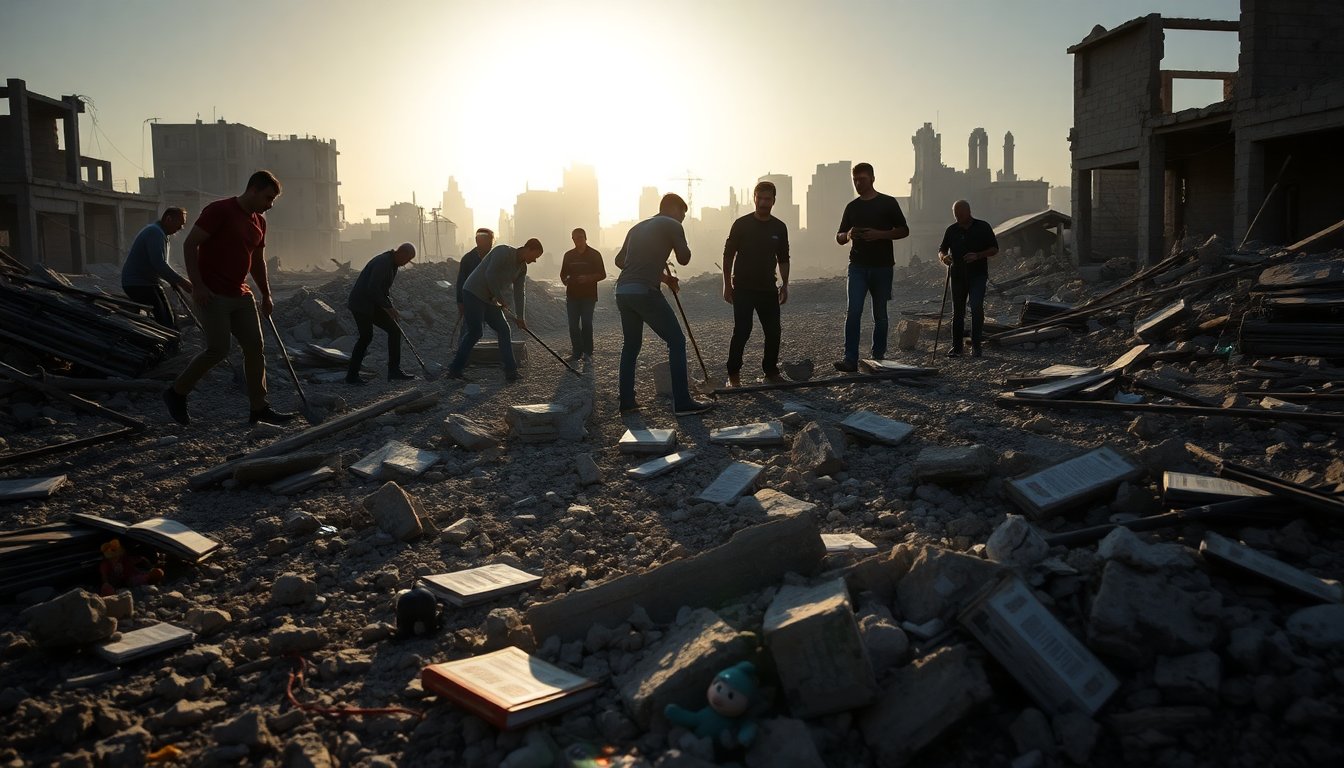Table of Contents
As dawn breaks over Gaza City, the sound of silence is punctuated by the rustle of debris and faint calls of those searching for missing relatives. Amidst the aftermath of conflict, families like that of Mu’ayyad Ajjour are enduring a painful journey, sifting through the ruins of their homes for loved ones. A recent ceasefire has provided a glimmer of hope, allowing these families to begin the heartbreaking task of unearthing the remains of those lost during the bombardments.
With makeshift tools and unwavering determination, Ajjour and his neighbor, Mohamed Zaida, are searching for Ajjour’s five-year-old cousin, Masa. The two men have established a daily routine, employing a rudimentary pulley system to navigate the treacherous landscape of rubble. The building that once sheltered Masa and her family has been reduced to a skeletal structure, a somber reminder of the violence that engulfed the area.
The grim reality of searching for loved ones
More than just a quest for remains, this search embodies the struggle of countless families across Gaza. The United Nations estimates that at least 11,000 bodies lie beneath the rubble, victims of an ongoing conflict that has claimed tens of thousands of lives. As Ajjour and Zaida work diligently, their hopes oscillate between despair and determination, urging them onward in their quest for closure.
Uncovering the past
After hours of painstaking labor, Ajjour unearthed a delicate white shoe while sifting through the debris. Its pristine condition starkly contrasted with the destruction surrounding them, evoking a mix of emotions. “Hammood, where did you find this?” he called out, using an affectionate nickname for Zaida. The sight of the shoe ignited a spark of hope within Ajjour, symbolizing their potential progress in finding Masa.
“This gives us hope to keep searching,” he stated, placing the shoe atop a nearby cement block, a makeshift memorial for the lost child. The quest for closure is not merely about finding a physical body but reconnecting with the essence of a young life prematurely taken.
The impact of war on families
The tragedy that befell Masa’s family is not unique; it is a narrative shared by many. On that fateful day in March, when the airstrike shattered their lives, Masa’s father was critically injured, and her mother, pregnant at the time, now recovers from her own injuries nearby. The unresolved fate of her father weighs heavily on the hearts of those left behind. “What did she do to deserve this?” Ajjour lamented, reflecting on the innocence of a child caught in the crossfire.
Hope amidst despair
The resilience of those searching for lost loved ones in Gaza is a testament to the human spirit. Each day, Ajjour and Zaida brave the dangers of unstable environments, driven by a profound need to honor the deceased with a proper burial. “We will continue searching for her father,” Ajjour declared, holding onto the hope that he remains alive, despite the grim realities surrounding them.
The situation remains fluid, yet the determination to unearth the truth and bring closure to grieving families persists. The United Nations and other organizations have begun efforts to clear away debris, though the enormity of the task is staggering. With millions of tons of rubble still obstructing the landscape, the journey to reclaim their lives continues for families across Gaza.
The quest for closure
As the sun sets over the ruins, Ajjour reflects on the emotional toll of the search. The white shoe, a symbol of innocence lost, serves as a reminder of what has been taken. Despite the overwhelming grief, there is a sense of community among those searching, a shared understanding of loss and the need for closure. “We will bury her by God’s decree,” Ajjour vows, clinging to the hope that his cousin’s spirit will find peace.
In the shadows of destruction, stories of loss intertwine with those of resilience, forging a path toward healing. As families continue their searches, they embody the fight against despair, steadfast in their belief that hope can be found even in the darkest of times.


